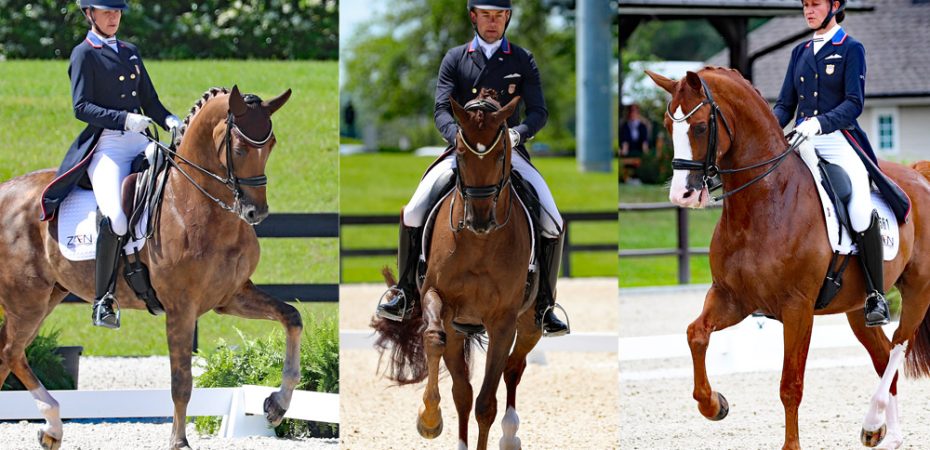Major Overhaul Likely for 2020 Olympic Dressage Qualifying With Up to 8 Teams To Earn Berths at Tryon World Games, Best 2 at 2019 Pan Americans
7 years ago StraightArrow Comments Off on Major Overhaul Likely for 2020 Olympic Dressage Qualifying With Up to 8 Teams To Earn Berths at Tryon World Games, Best 2 at 2019 Pan Americans

Nov. 13, 2017
By KENNETH J. BRADDICK
A major overhaul of qualifying for the 2020 Tokyo Olympic Games is expected to be approved within the next week, with up to eight nations qualifying teams at next year’s World Equestrian Games in Tryon and the best two teams at the 2019 Pan American Games in Lima, Peru. The World Games will be the prime qualifying event for eight of the 14 contested team spots, including for Africa, the Middle East, Southeast Asia and Oceania.
The new qualifying format for a total of 15 teams that is a combination of adopting procedures similar to the other two Olympic disciplines of jumping and eventing as well as proposals from national federations that included pressing for not sacrificing quality at the expense of more “flags” will be decided at the International Equestrian Federation (FEI) four-day General Assembly in Montevideo, Uruguay beginning Saturday.
Canada will likely benefit from the proposed changes to a format that led to a team from the country being excluded from last summer’s Olympics in Rio de Janeiro as only one nation could qualify through the 2015 Pan Ams.
Most of the proposed format changes in which 60 horse and rider combinations can qualify for Tokyo appear to represent the views of the majority of dressage nations and have been endorsed by the FEI’s Dressage Committee.
Teams will will comprise three pairs with all scores counting and not four with one “drop” score that has applied at some Olympics as well as the World Games, continental and regional championships and most Nations Cup competition. However, a reserve combination may be permitted for teams.
The proposed 2020 Olympic qualifying schedule, excluding Japan that is automatically allocated a team slot as the host nation:
–Six best ranked teams from the 2018 World Equestrian Games in Tryon, excluding the host country of Japan;
–Three best ranked teams from the 2019 European Championships from northwestern and southwestern Europe not already qualified at WEG;
–One best ranked team from central and eastern Europe and central Asia at a designated qualifying event;
–Two best ranked teams from the 2019 Pan American Games;
–One best team from Africa and the Middle East from the 2018 WEG or, if not fulfilled, at a designated qualifying event, and
–One best team from South East Asia and Oceania at the 2018 WEG or, if not fulfilled, at a designated qualifying event.
The FEI wants to eliminate “composite” teams that countries have previously been able to form by qualifying enough individuals after failing to qualify through the specified events, unless the team quota is not reached.
The new qualifying procedures for 15 teams totaling 45 combinations and 15 individuals addresses most of the criticism from the 2016 format that provided for three teams qualifying through the 2014 WEG, one at the Pan Ams the following year and the remainder at other events. The FEI argued that the allocation of a place for Brazil as the host nation of the Olympics gave the Americas two spots so only one could be earned through the Pan Ams.
The results was that Canada and the United States did not qualify through WEG and had to fight for the single spot available through the Pan Ams in Toronto in 2015. The United States was successful.
Canada argued in seeking to qualify the two best teams from the Pan Ams: “Canada is internationally a top 7-10 team in any given year and was prevented from competing as a team in Rio, however, countries that have never cracked the top 10 internationally were able to compete in Rio as a team. Having to choose between Canada and the US every cycle is not fair to either nation… or to the spirit of the Games. We understand the desire for more flags to be represented at the Olympic Games, but that should not be at the expense of the quality of the field.”

